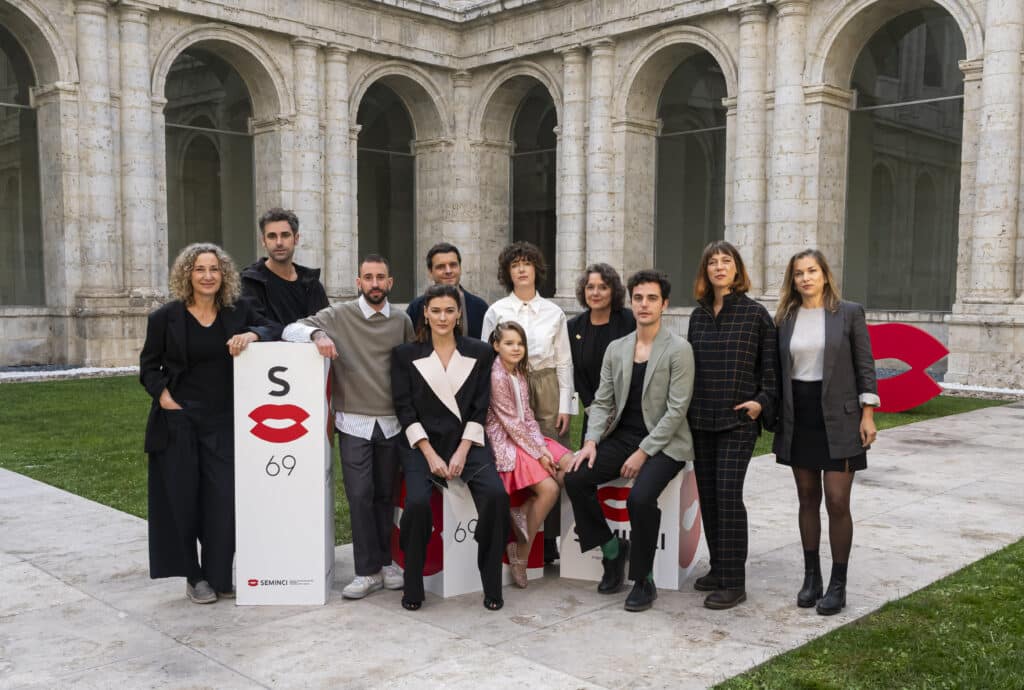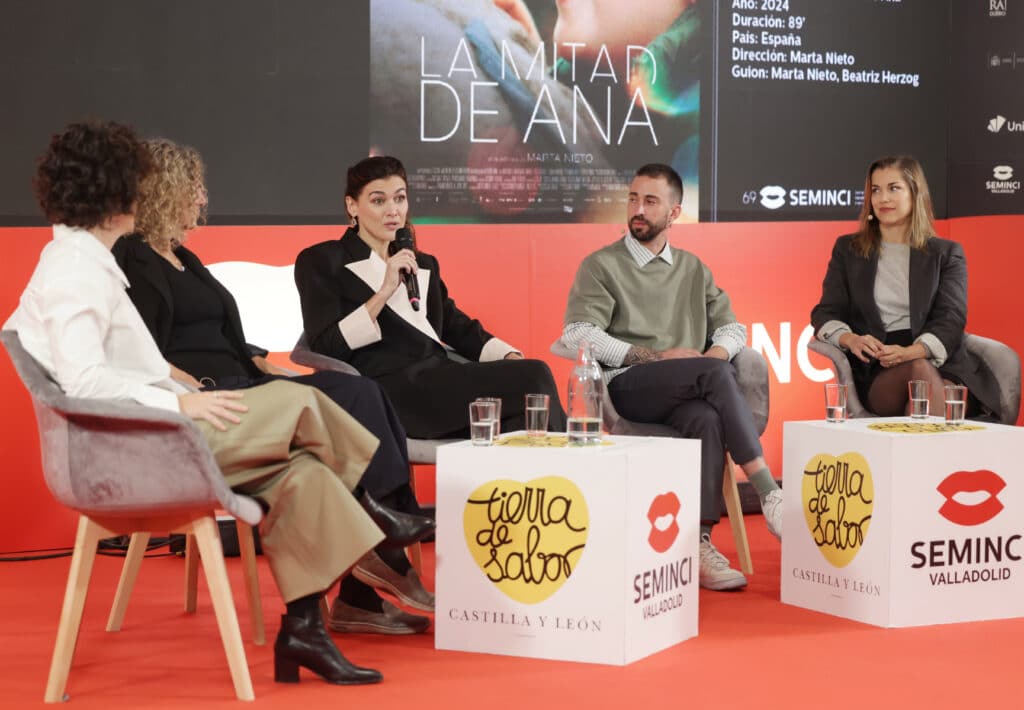- The film, a continuation of the short film Son (Official Section in 2022), offers a portrait of gender identity through the eyes of the mother of a trans daughter

Valladolid, 21 October 2024. Goya winner Marta Nieto, star of titles such as Madre (Rodrigo Sorogoyen, 2019) and Tres (Juanjo Giménez, 2021), premieres her directorial debut in the Official Section of the 69th edition of the Valladolid International Film Festival (SEMINCI). La mitad de Ana expands the universe created by the filmmaker in the short film Son (2022), in which Patricia López Arnaiz played a mother trying to reunite with her six-year-old son. On this occasion, Marta Nieto herself takes the baton from López and leads the cast, in which she is accompanied by Noa Álvarez in the role of Son and Nahuel Pérez Biscayart (Un año, una noche, 120 latidos por minuto) as her ex-partner.
La mitad de Ana tells the story of a separated mother who combines her job as a museum guard with caring for Son, her eight-year-old daughter. When she begins a process of exploring her gender identity, Ana must also embark on an internal journey that will lead her to look back at the woman she was before becoming a mother.
‘For me, the film is about how one can manage to change one’s own point of view. The crisis that Son proposes to Ana is what mobilises her, what makes her learn to look at her life from another point of view. It seems to be about trans childhood, but it’s really about how an adult woman can reinvent herself and be reborn. Of course, it is something she does for her daughter to be better off; but, as a result, she is better off too’, said Marta Nieto, who was accompanied by the scriptwriter Beatriz Herzog.

From the Academy to SEMINCI
La mitad de Ana came about within the framework of the residencies at the Film Academy, where Marta Nieto and producer María Zamora (Elástica Films) began to work hand in hand. ‘Many people think that the feature film came from the short film, but in fact it was the other way around. The film first entered the residence of the Academy. Afterwards, María joined the project and, at that point, she told me that we could make a short film first to explore directing’, said the filmmaker.
Regarding taking on the dual role of director and actress for the first time, Marta Nieto said that it was a natural process: ‘I felt very comfortable making the short film and I wanted to direct the film. The decision to play Ana came much later; it wasn’t something that was clear to me from the beginning. Maria proposed it and, after a lot of thought, we decided to do it that way. If you had asked me five years ago if I would be here, I would have said no. It’s such a big deal to direct and write’.
For her part, producer María Zamora, winner of the National Film Award 2024, acknowledged that what interested her about the project was that the gender identity was addressed from the mother’s point of view, focusing on the fact that she also needs to search for her own identity: ‘It often happens that, when you are a mother, you leave a little aside who you are as a woman and as a person. I like the fact that here we see a woman who has to make this journey through her child to find herself again’. And she added: ‘I also think it’s very nice how each of the characters relates to the situation; that the film leaves room for us to see how each one reacts and that we can identify with one point of view or another’.
The points of view
In this portrait with different points of view, the acting work was crucial. Actress Sonia Almarcha said: ‘The film is a representation of something much bigger on a social level, of how everyone does what they can. I think that my character, although she has difficulties understanding something that is new to her, does everything out of love’.
The actor Pablo Alamá said: ‘My character is a bit of a calming influence. He is someone who is above the situation, because he has lived it. In a way, he is there to give Ana inner peace, to tell her that the only thing she has to do is to do nothing and let Son be who she is. I think the film goes beyond the gender issue and talks about parenting in general, about how parents establish a framework to let children freely discover who they are’.
An idea that Sara Nieto reinforced by concluding: ‘We had the calling to try to generate a broader imaginary of diversity, each one from their own place. The good thing about fiction is that there is room for characters of all kinds. My intention is that the viewer, whoever they are, can see themselves reflected on screen. It’s something that cinema has to do.’

Press contact:
983 42 64 60
prensa@seminci.com



























![Logo Foro Cultural de Austria Madrid[1]](https://www.seminci.com/wp-content/uploads/2024/09/Logo-Foro-Cultural-de-Austria-Madrid1-300x76.jpg)








